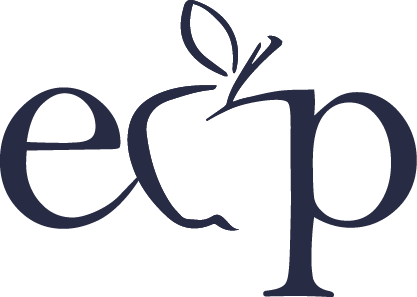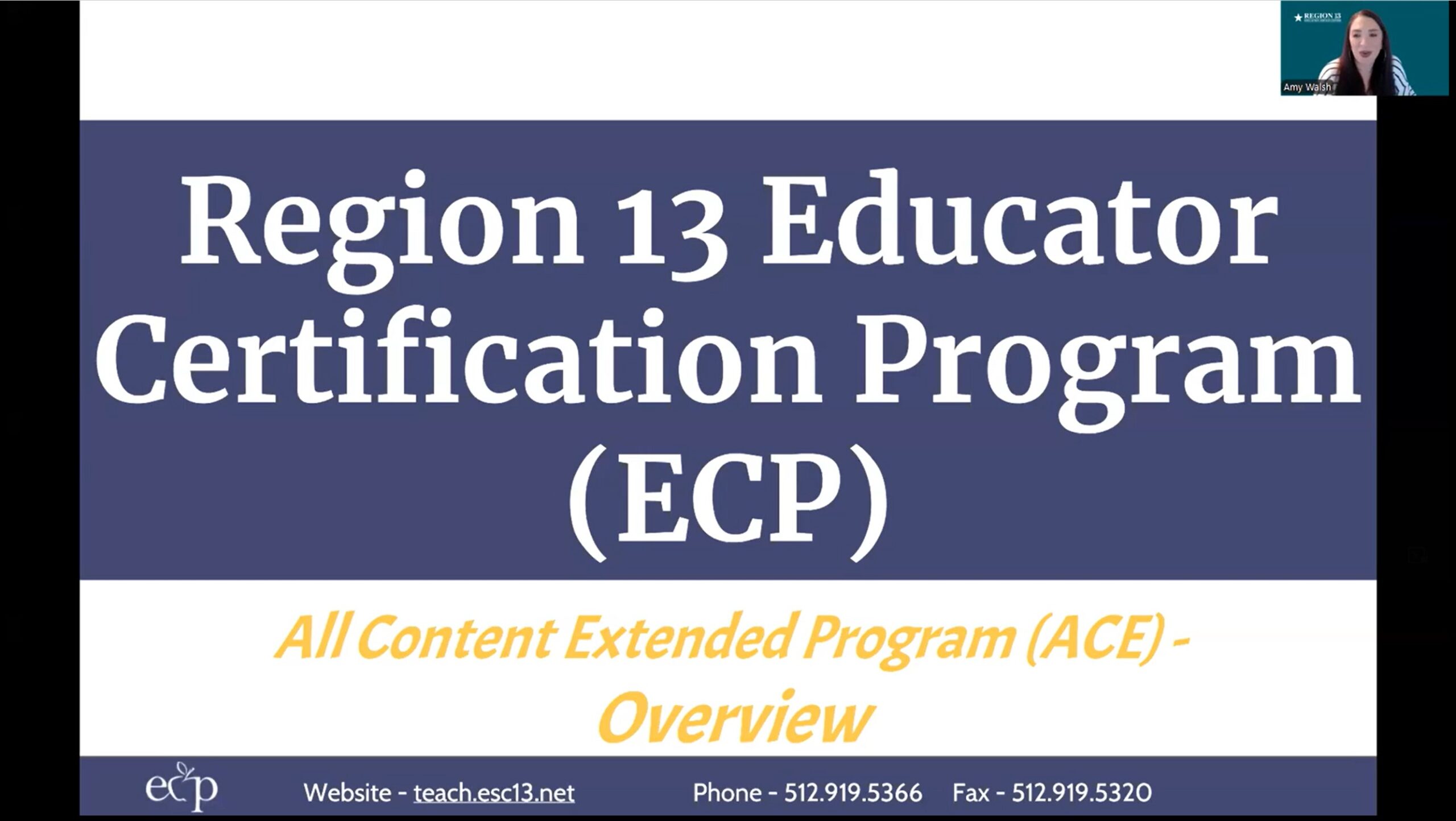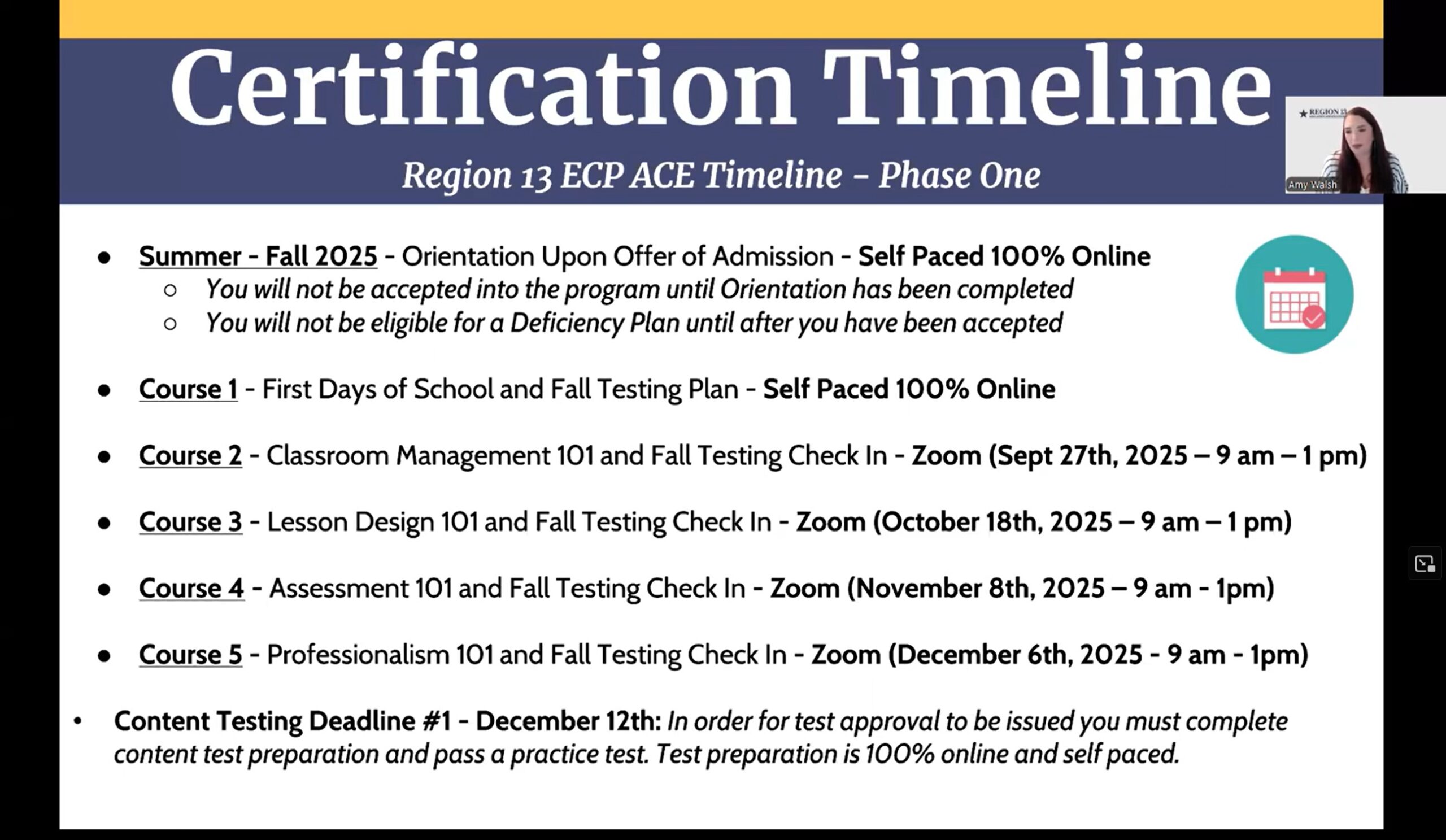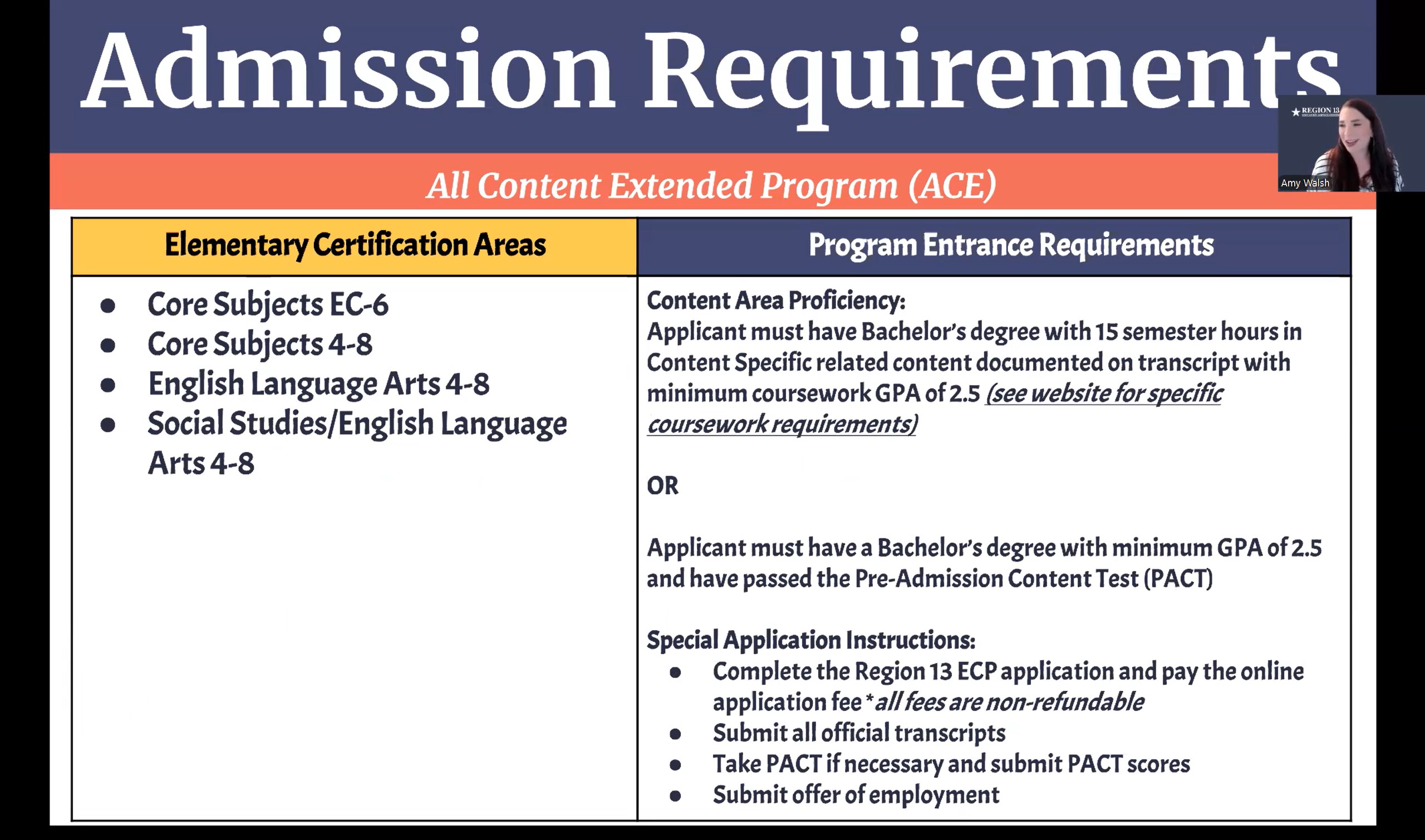
All Content Extended Program
Designed specifically for applicants seeking a flexible pathway to certification. This program will begin accepting applications on April 28, 2025.
About the Program
The Region 13 All Content Extended Program (ACE) is a flexible preparation program designed for candidates pursuing certification in any content area or grade level. This program is ideal for applicants seeking to balance certification requirements—including testing, coursework, and field experience—with their busy schedules.
Note to districts: Districts may utilize any of the available hiring options when hiring a participant in the All Content Extended Program. Review our Certification Guide for these options. The ACE Program was formerly called the District Referral Program (DRP).
Information Sessions and Schedule
To gain a better understanding of this program, watch these pre-recorded information sessions covering the ACE overview, timeline, and admission process. You can also download the full ACE Schedule for 25-26.
Certification Options

Core Subjects

ESL Core Subjects

Bilingual Core Subjects
The Bilingual Core Subjects certification area allows participants demonstrating proficiency in Spanish to teach English language arts and Reading (ELAR), Spanish language arts and reading (SLAR), math, science, social studies, music, art, health, and physical education in Early Childhood through 6th grade in a bilingual environment.
Participants must demonstrate a near-native proficiency level in speaking, reading, writing, and listening in Spanish to qualify. Applicants must pass a bilingual screener to be conducted during the application process. If language proficiency is not determined applicants will be encouraged to pursue the ESL certification pathway.

Dual Certification

Middle Level

Secondary Level

All Level

SPED EC-12
Program Requirements
Bachelor's Degree
Candidates must have a degree earned from and conferred by an accredited institution of higher education.
Min 2.5 Grade Point Average
Official College Transcripts
Request your official transcripts be sent to the ECP office.
Submit Application
Complete our online application with all required documents.
Pricing
We offer an affordable fee schedule that is competitive with other programs. Program fees cover:
- Field experience training
- Pre-service and In-service training
- Test preparation
- Sustained support
- Flexible Schedule
Fee Breakdown
- Application Fee: $100
- Registration Fee: $150
- Phase 1 – Phase 3: $150 per month
- Phase 4: $5591
- $2,000 critical needs scholarship available (not yet applied to pricing)
Curriculum
Our certification program curriculum is aligned with Texas Education Agency standards and educational best practices. All curriculum is taught by certified staff and content area experts.
Training
Phase One of this program is 100% virtual. Phases Two – Four have both virtual and hybrid (mix of virtual and in-person) options.
Phase One training includes:
- Classroom Management
- Lesson Design
- Assessment
- Professionalism
- Student Growth and Development
- SPED 101
- delivering engaging instruction
- integrating content specific strategies into lesson design
- developing and using student assessments
- understanding student diversity and instructional differentiation
- preparing for formal classroom observations
- preparing for TExES PPR exam
- preparing for TExES content exams
- implementing Marzano’s high yield strategies
- developing and using a variety of questioning strategies
- integrating the core principles from The Fundamental Five
Technology
- incorporating the effective use of current technology in instruction
- evaluating students’ technologically produced products and projects
- utilizing technology applications in problem-solving situations and project-based learning activities
- using developmentally appropriate instructional practices, activities, and materials to integrate the Technology Applications TEKS into the curriculum
- managing technology platforms to increase communication with student families on academic and behavior progress



